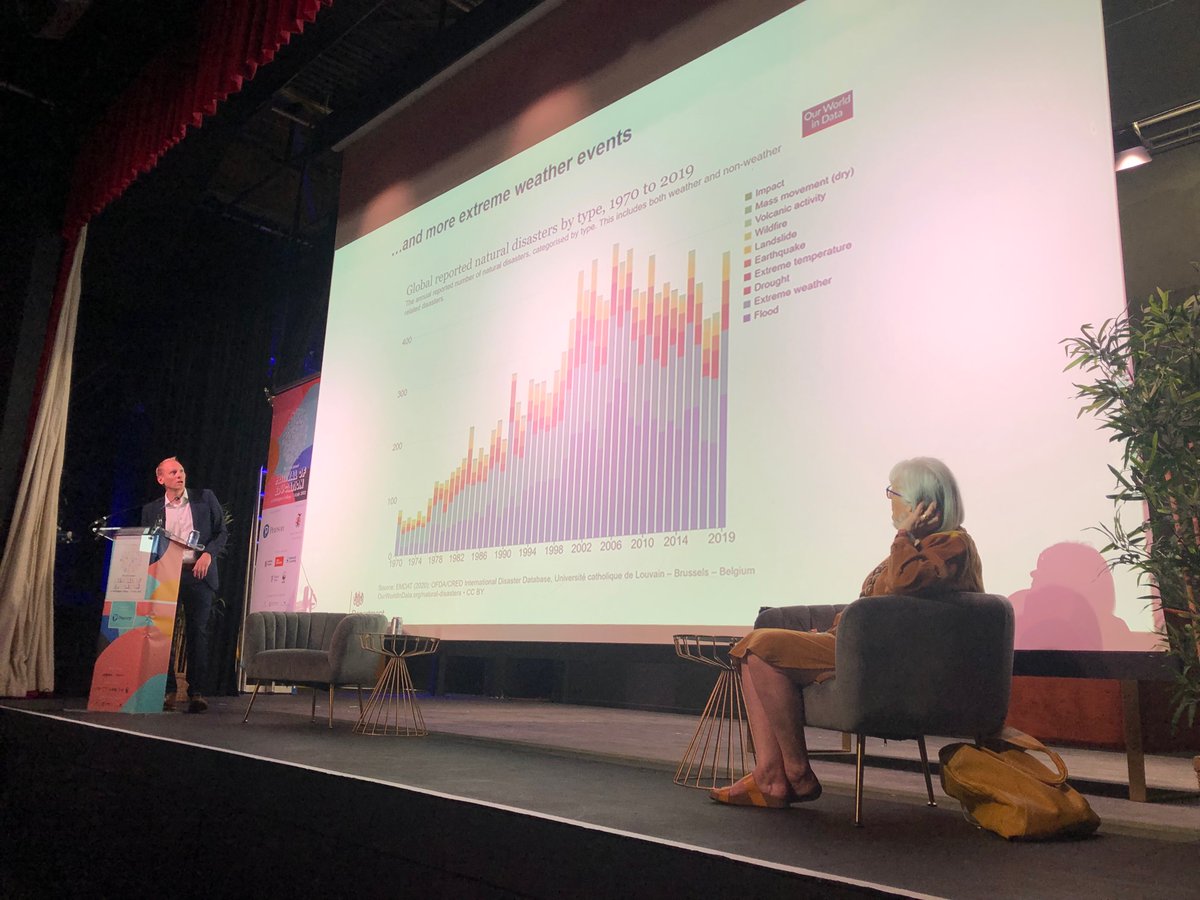Just to manage emissions to stop further increases will mean making “unrecognisable changes” to our lives.
For the first time since its inception in 2010, the Festival of Education, held at the prestigious Wellington College, had a sustainability strand, hosting 34 sessions on this theme, organised by a partnership between SEEd, the WWF and Wellington College. On Friday 8th July 2022, Dr Jonathan Dewsbury, Deputy Director and SRO (senior responsible owner) of Sustainability and Climate Change for the DfE, spoke at the festival. The DfE launched its sustainability and climate change strategy in April 2022. Their vision is for the United Kingdom’s education sector to be a world leader in sustainability and climate change by 2030.
The urgency to make change
Dr Jonathan Dewsbury opened his talk with a heavy dose of realism, acknowledging the emotions young people are experiencing around climate change: anger, anxiety, fear and hope. The facts of climate change are undeniable, and Dr Dewsbury set the context with data on rising temperatures and natural disasters. He spoke of the urgency to make changes, and the fact that just managing emissions to prevent further increases will mean making “unrecognisable changes” to our lives.
The sector has great potential to influence and positively impact the UK’s carbon footprint.
Schools need to adapt now. Many schools in the UK are too hot, some are too dry, and 10,000 schools are already at risk of flooding. And we can see the direct impact on education more starkly in the global South; 300,000 children had their education disrupted in southeast Africa because of cyclones in 2019. In 2020 and 2021 we saw the impact of the pandemic on lost days of education, and climate change will also have this effect. And just days after the festival, a red weather warning was issued for the UK, leading to uncertainty and confusion around school opening for teachers and parents across the country.
Every school is required to have a Climate Action Plan by 2025, and have a member of staff trained in Carbon Literacy.
The impact that education can make
The UK education system is a big contributor to emissions. Dr Dewsbury shared statistics showing 36% of public sector emissions are from schools; one mile in every 70 driven in the UK is a school commute; and there are 2,100 oil burners being used in school buildings.
On the flip side of this, the sector has great potential to influence and positively impact the UK’s carbon footprint, with one in six people visiting a school every weekday. The UK has the ambition to be a world leader in sustainability by 2030, and has four strategic aims to deliver this vision:
- Excellence in education and skills for a changing world: preparing all young people for a world impacted by climate change.
- Net zero: reducing direct and indirect emissions from education and care buildings, providing opportunities for children and young people to engage practically in the transition to net zero.
- Resilience to climate change: adapting our education and care buildings and system to prepare for the effects of climate change.
- A better environment for future generations: enhancing biodiversity, improving air quality and increasing access to, and connection with, nature in and around education and care settings.
Reconnecting children to nature
Do one thing differently, and make a green choice.
An important strand in the strategy is increasing connections with the natural world. The Dasgupta Review highlights the importance of children staying in touch with nature, and the strategy introduces a new GCSE in Natural History, designed by OCR to be first taught in September 2025. The strategy also created the concept of a National Education Park, considering all school grounds together as one estate of 621 sq km. And the department is consulting on an award to recognise young people who are climate leaders. Every school is required to have a Climate Action Plan by 2025, and have a member of staff trained in Carbon Literacy.
A member of the audience asked how the decarbonisation of the schools estate would be funded, and Dr Dewsbury said we need to focus on stimulating the economy to create the jobs we need to meet our carbon targets. A TUC report published the day before stated that 42,000 green jobs could be created greening the UK education estate.
Dr Dewsbury closed his talk by asking us all to do one thing differently, and make a green choice.
Sustainability in education
Our Sustainability in Education blog series is created by our Head of Operations Claire Gilbert, who has recently been certified Carbon Literate. Part two takes us back to the classroom, learning from our Classroom Expert and award-winning eco coordinator Edd Moore about the impact children have made at his school and beyond. Parts three and four share insights from Claire’s own journey in setting up an eco-crew at the primary school where she is a governor.
Sign up below for our newsletter to hear more about key topics in education.

